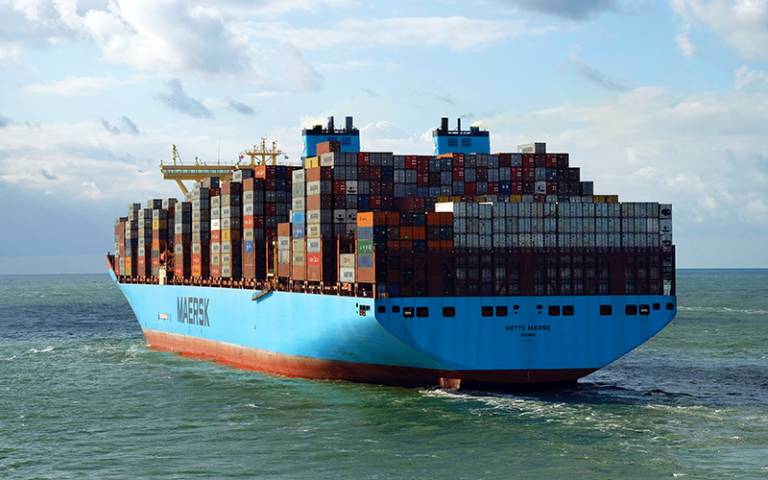World Economic Forum launches coalition to drive demand for low carbon tech
4 November 2021
UCL Energy Institute researchers have contributed to the design of ambitious shipping sector commitments for shipping lines and cargo owners.

The World Economic Forum, in partnership with US Special Presidential Envoy for Climate John Kerry, has today announced the First Movers Coalition - a new platform for companies to make purchasing commitments that create new market demand for low carbon technologies.
US President Joe Biden first announced the First Movers Coalition in a headline speech to COP26 on Tuesday.
The First Movers Coalition will spur growth by leveraging collective demand and committing now to buying zero-emission goods and services by 2030, working across eight key sectors, of which seven (steel, cement, aluminium, chemicals, shipping, aviation, and trucking) account for more than a third of global carbon emissions, but do not have cost-competitive energy alternatives to fossil fuels.
UMAS, along with Getting to Zero Coalition, Aspen Institute and Mission Possible Partnership, contributed to the design of the shipping sector commitments.
For carriers, at least 5% of deep-sea shipping will be powered by zero-emission fuels by 2030, enabled by ships capable of using zero-emission fuels. For cargo owners, at least 10% of the volume of goods shipped internationally will be on ships using zero-emission fuels by 2030; on the way to 100% by 2040, a target that is in line with the recently announced Cargo Owners for Zero Emission Vessels initiative (CoZEV), which UMAS also contributed to.
UMAS is a sector focussed, commercial advisory service that draws upon the world leading expertise of the Shipping Team at UCL Energy Institute combined with the advisory and management system expertise of UMAS International Ltd.
Dr Tristan Smith, Reader in Energy and Shipping and Director at UMAS, said:
“We have left GHG reductions so late that if we delay investment until policy solutions at the IMO are implemented, global trade risks a late and disruptive transition. FMC builds on the approach in CoZEV of mobilizing the customers of shipping to take responsibility for their scope 3 emissions – motivated also by the risks of disruption to their supply chains if we get this wrong. This is already making business cases for investment in the long-run green hydrogen derived and ammonia solutions this sector needs and prepares shipping’s transition for the forthcoming implementation of IMO policies that can then further scale their deployment.”
Links
- First Movers Coalition
- (Video) Biden announces First Movers Coalition ahead of COP26 launch
- Dr Tristan Smith
- UMAS
- Shipping research at UCL Energy Institute
- CoZEV
 Close
Close

